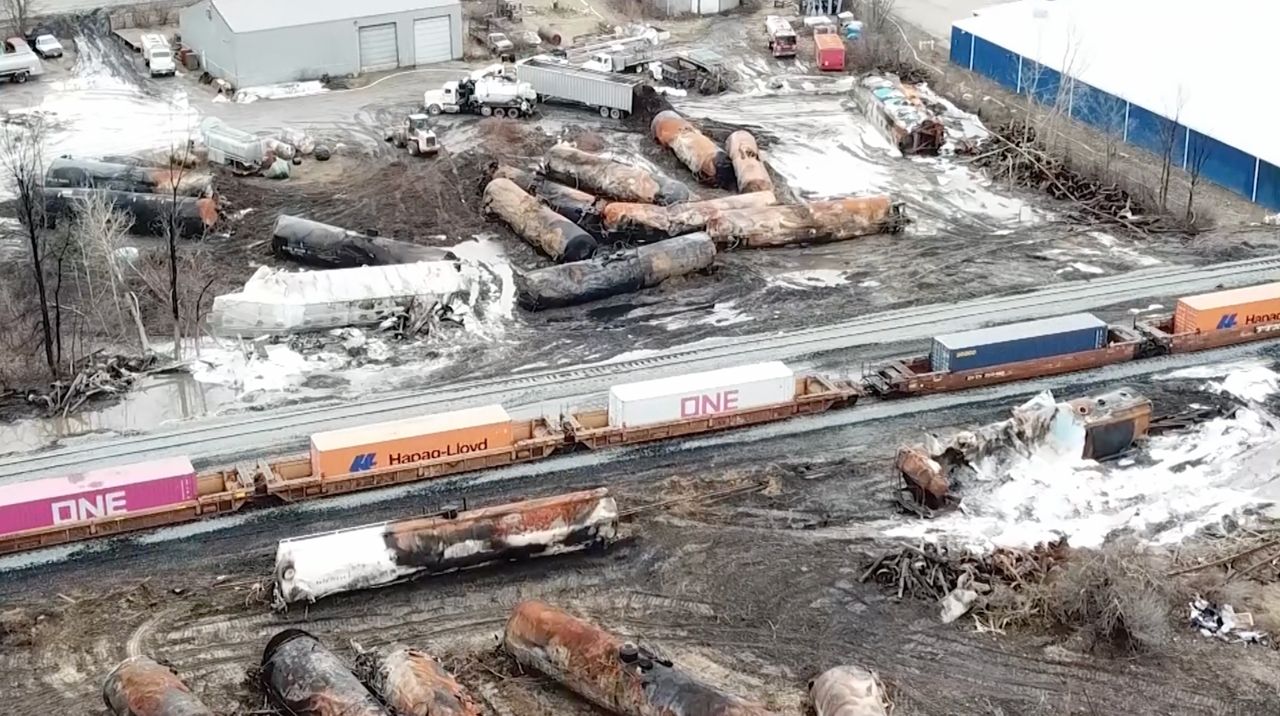EAST PALESTINE, Ohio (AP) — The head of the U.S. Environmental Protection Agency said Tuesday he doesn’t want any stigmas attached to the Ohio community where a train derailed and spewed toxic gases three weeks ago and that he’s pushing the railroad to clean up the mess as fast as possible.
The agency is continuing to monitor the air around East Palestine and working to protect the area during the cleanup, said EPA Administrator Michael Regan. State and federal officials say testing has shown no signs of contamination from the derailment in the air or the village’s water system.
“We don’t want a black eye on this community,” he said.
The agency on Tuesday opened an office where people can sign up for air monitoring inside their homes and cleaning services at their homes and businesses. Residents can also go to the office to ask officials other questions about the cleanup effort.
“We want to go that extra mile so that people feel comfortable living in their community,” Regan said at a news conference after he earlier met with high school students in the village. “The people of East Palestine will not have to figure out what comes next on their own.”
Crews resumed hauling contaminated waste from the derailment on Monday after concerns were raised about oversight of where it was being shipped.
The EPA has ordered Norfolk Southern to cover the costs of cleaning up from the Feb. 3 derailment that toppled 38 rail cars. No one was hurt, but concerns over a potential explosion led state and local officials to approve releasing and burning toxic vinyl chloride from five tanker cars.
Many residents remain worried about what they might have been exposed to and how it will affect the area in the years ahead.



